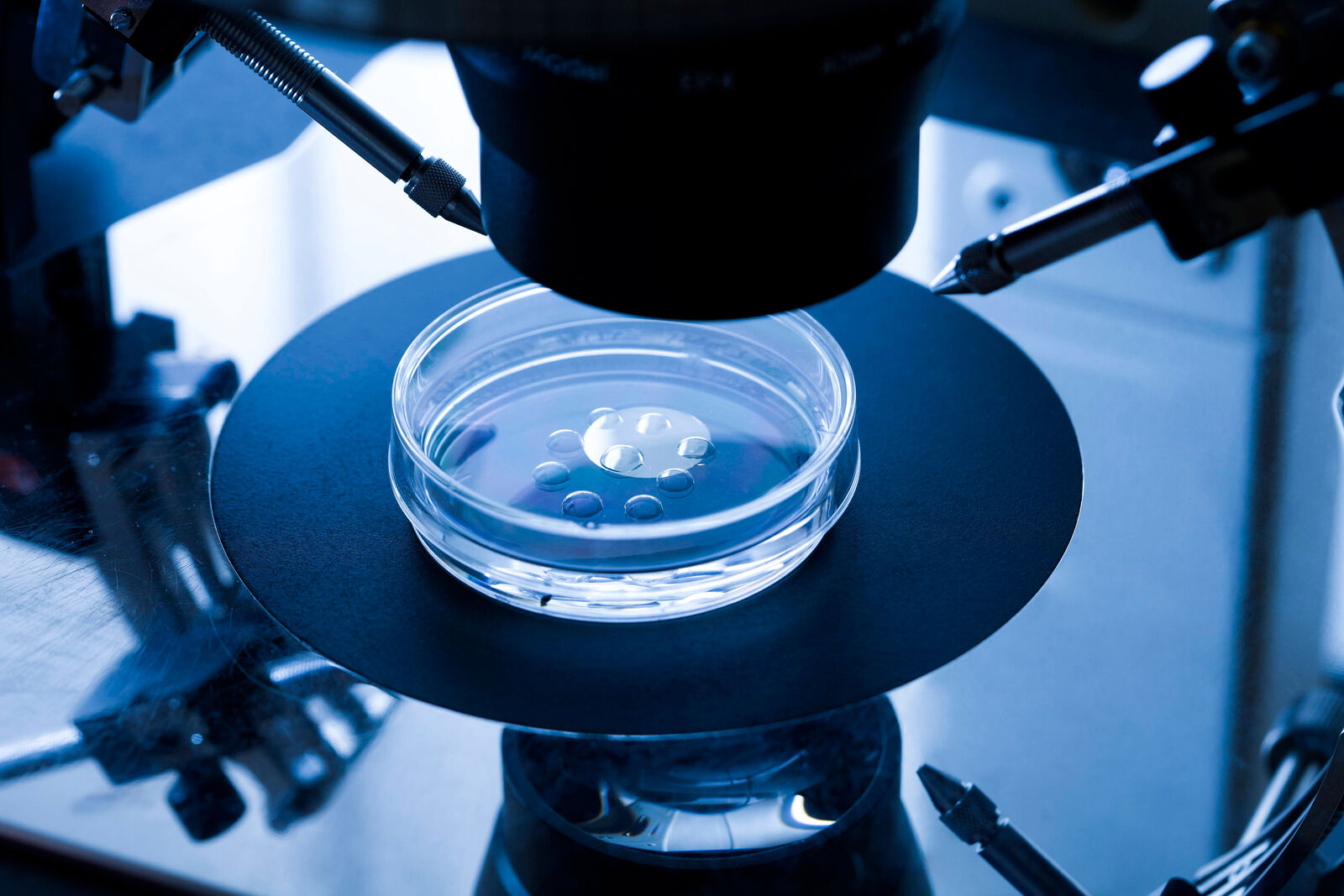
Patient Education

Ovulation Cycle
A fundamental part of conception
Ovulation problems are among the most common causes of infertility. If you are not having regular periods each month — or if your cycle is very long or very short — you may be having problems with ovulation.
The Monthly Cycle at a Glance
Hormones At Work
As the embryo implants, it begins to produce Human Chorionic Gonadotropin (hCG), which maintains the lining of the uterus during the implantation process. By day 28, the hCG levels are high enough that a urine pregnancy test will be positive.
Hormones Must Work in Harmony
Over the course of the monthly ovulation cycle, several hormones must interact with each other seamlessly in order for ovulation to occur. For example, as estrogen rises it causes the FSH level to drop (preventing more than one egg from maturing). The LH surge is stimulated, which then causes release of the egg. In effect, each hormone fluctuation dovetails into the next. With this in mind, it’s easy to see how critical it is for each one to perform its role. If even one goes wrong, all the others get thrown off. Fortunately, once any ovulation problems are identified, your doctor can take steps to correct them.
Emotional Considerations
The fertility treatment journey can be an emotional one. All of the emotions you may experience during this unique time in your life are important, valid, and completely normal. Our goal at Heartland Fertility is to be part of your support system right from day one. You may find some of the following suggestions to be helpful as well.
Focus on yourself. If possible, reduce the amount of time you spend working or volunteering. If you have children, arranging for assistance with childcare can be very helpful. Leaning on your support system, be it friends or family, will be important.
Revisit stress reduction techniques that have been beneficial to you. Many patients report that journaling, meditation, yoga, reading, movies or napping can be helpful in temporarily getting your mind off the more stressful aspects of treatment.
Allow yourself to feel each emotion fully and without judgment. It may be uncomfortable, but embracing your emotions will help you manage them as they arise and make you stronger throughout the experience.
Communication Is Key
Leaning on your support system – your partner, family and friends, is a crucial part of the fertility journey. It is important to keep the lines of communication open, and remember that it’s up to you to decide just how much information you want to share – and with whom you want to share it. This is your very personal journey – what you share is up to you.
Learn more about Counseling and Support options as part of your fertility journey.
Educational Videos
Affiliate Partners and Resources
Knowledge is power, and at Heartland Fertility, we encourage you to learn everything you can to help you through this journey. Below are a number of resources that may help you find out more.
Please note that Heartland Fertillity is not responsible for the content and information generated by these independent online resources.
Robynne Kazina
Taylor McCaffrey LLP,
2200-201 Portage Avenue,
Winnipeg, MB R3B 3L3
Gregory Evans
Chau Tran
Evans Family Law Corp
190 Sherbrook Street
Winnipeg, MB R3C 2B6
Daryl Chicoine
MLT Aikins, LLP
30th Floor, 360 Main Street
Winnipeg, MB R3C 4G1
Ready to get
started?
We make it easy to begin. Whether you're interested in IUI, IVF, or fertility testing, our compassionate team is here with expert care and guidance, so you can take your next step with confidence.

